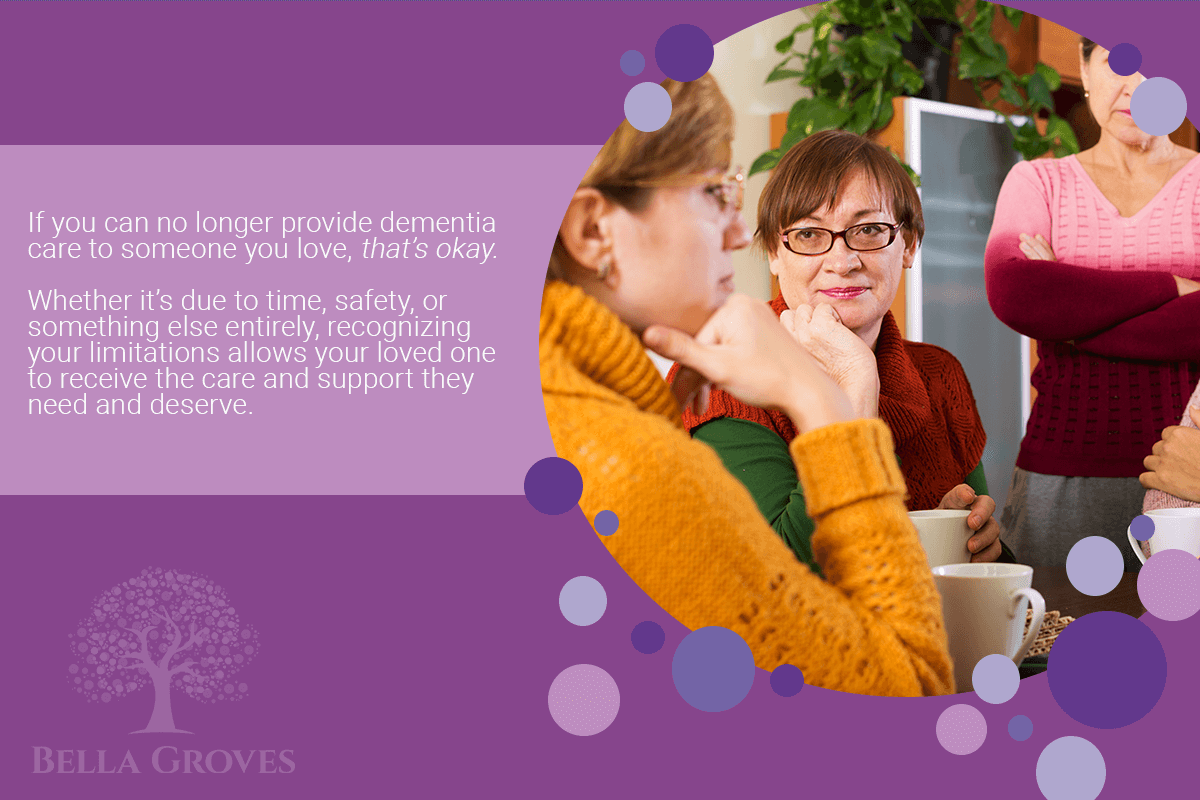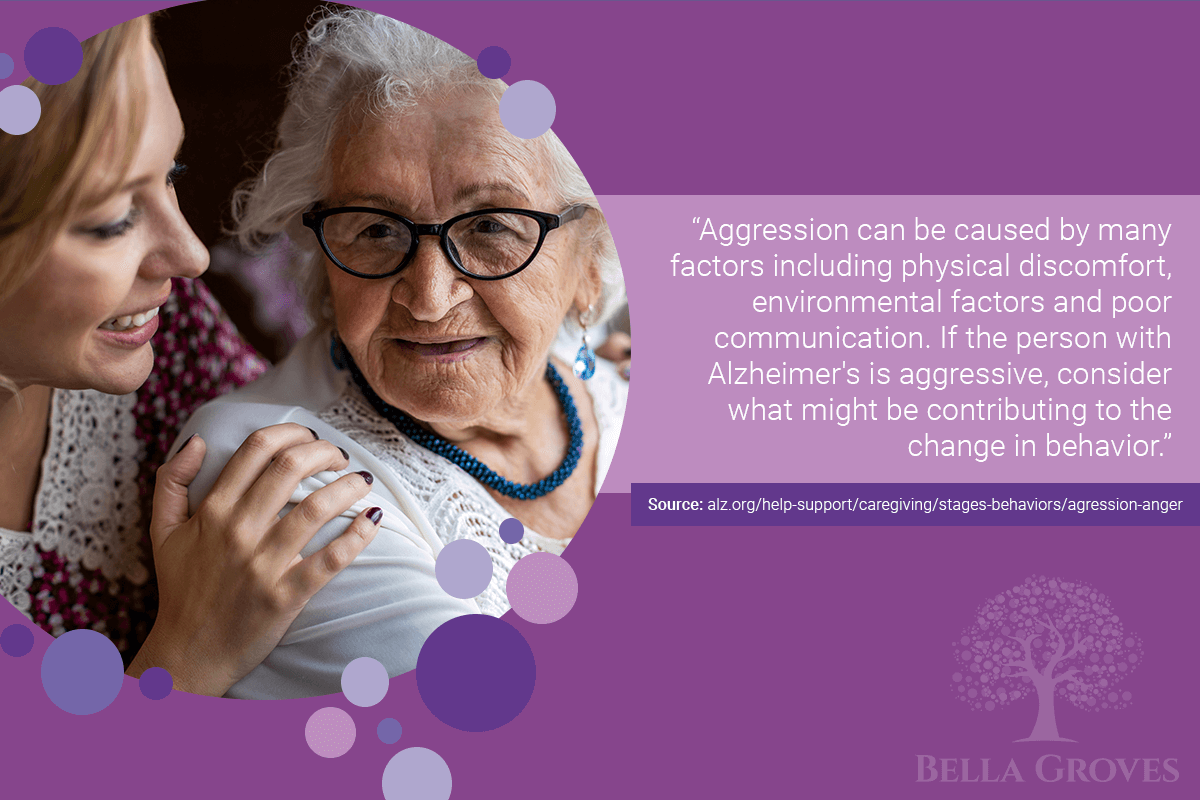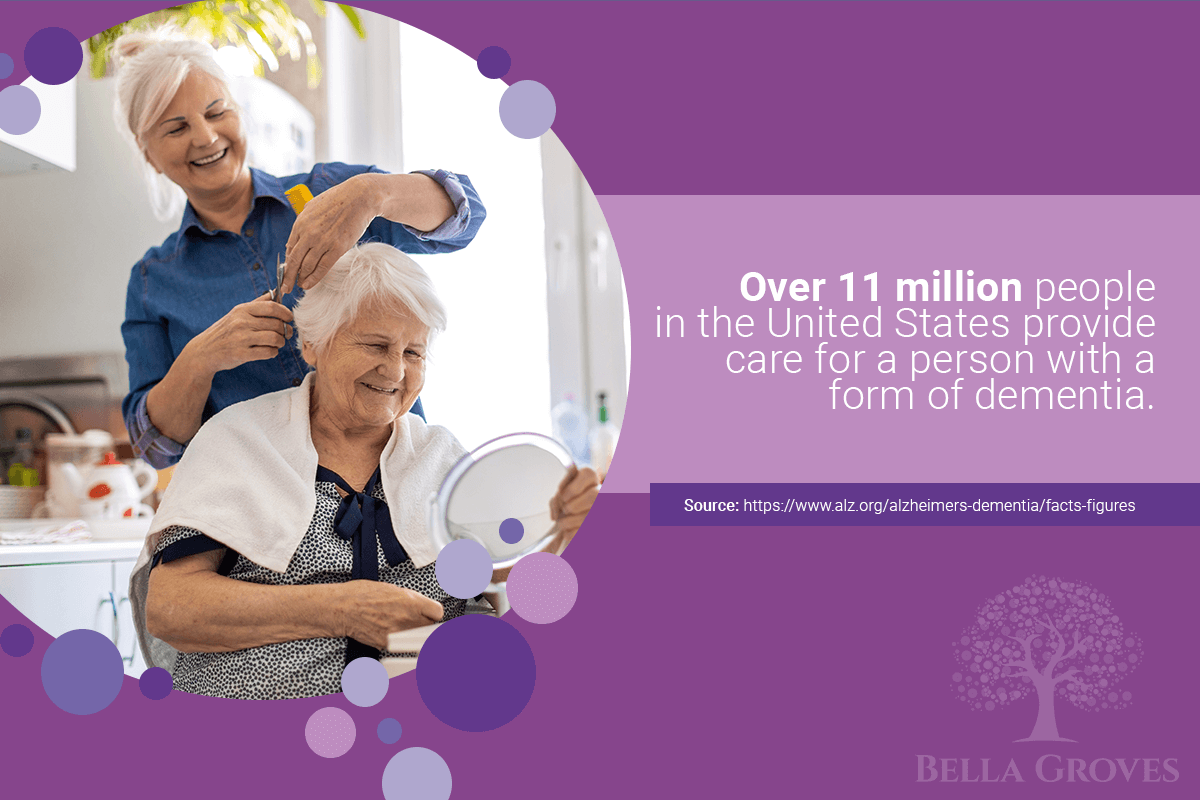
How to Tell Your Family You Are No Longer Able to Serve as a Dementia Caregiver
Caregiving takes many qualities – bravery, strength, patience, and kindness. Knowing you’re responsible for the well-being and happiness of someone you love can be a fulfilling and enriching experience, but it certainly isn’t a position for everyone.
If you’ve been serving as the primary caregiver for a loved one living with dementia, you’re all too aware of the ups and downs that can occur on this journey. Yet, you’ve likely given much of your time and energy to ensure your loved one is able to continue living a full and engaged life.
Bella Groves’ mission is to create joyful moments for families and individuals impacted by dementia. We aim to change the way people think about memory care facilities by changing the way we care.
If you can no longer provide dementia care to someone you love, that’s okay. Whether it’s due to time, safety, or something else entirely, recognizing your limitations allows your loved one to receive the care and support they need and deserve.
Our team is sharing tips so you can talk openly with your family about these limitations and discuss alternative care options.
Reframe Your Mindset
Everyone can reach a breaking point, whether in a career or relationship, and it’s important to understand these feelings are natural. When a person has reached a limit after trying their best in a situation, they shouldn’t feel guilty if they’re no longer able to continue.
However, it’s also natural to feel guilty when you’ve realized you’re no longer able to provide care for someone you love, especially if you’ve been their primary caregiver for an extended period of time. Caregiving creates a strong bond between the person providing care and the person receiving care, especially when caring for a relative or close loved one.
Perhaps your loved one requires additional dementia care and support, or maybe when stepping into the role of caregiver, you stepped away from other roles that are just as important. Fortunately, professional support and memory care facilities are available to provide specialized care for people living with dementia. Being honest about your situation and recognizing you’re unable to continue as a caregiver is the best possible scenario for your loved one’s health and wellness.
By reframing thoughts of guilt, stress, or burnout, you can understand how your decision can ultimately benefit your loved one’s overall quality of life.
Acknowledge Your Feelings
Are you afraid your family will be judgmental if you tell them you can’t continue to provide care? Are you worried your loved one will feel abandoned? Do you feel selfish about this decision?
All of these feelings are valid, and caregiver guilt is incredibly common. About 29% of caregivers spend over 40 hours a week providing care for a loved one, with 59% admitting they’ve harbored some form of guilt, whether they feel as though they aren’t providing proper care or they feel unable to take time for themselves and their own personal needs.
Before you talk with your family about this change, it’s important that you acknowledge and accept your feelings so you can defend your decision. This choice isn’t about you or them; it’s about the person living with dementia. The end goal is that your loved one receives the care, support, and engagement they need to experience unconditional joy every day.
Start the Conversation
Once you’ve come to terms with your decision, acknowledged your feelings, and determined this is the best course of action for your loved one’s dementia journey, it’s time to tell family, friends, and whoever else it may impact.
The goal of the conversation is not to point blame, argue, or pass the caregiving responsibilities to another family member (unless someone willingly steps up) but to calmly explain why you are no longer able to provide the level of care your family member needs, how it’s impacted you and their care, and why additional care options should be considered.
Discuss Dementia Care Options
If your family member remains in their current home, you can consider in-home care options, where a caregiver (live-in or otherwise) offers dementia care and support in the home.
However, if your loved one has sold their house and moved in with you for safety reasons, memory care facilities may be a better option, offering residential housing, daily enrichment, and the compassionate care your loved one deserves.
Bella Groves partners with families every step of the way through their dementia journey, and our residential dementia care in Bulverde, Texas, is the type of community we would want our own families to live in. Located on a scenic ranch near San Antonio, our secret to “home” begins with our commitment to the best caregivers in our industry. We have a higher calling than just “taking care” of people. Our purpose is a community of unconditional joy.
Bella Groves is truly a place you have to experience to believe, and you’ll notice the difference right away! Schedule a visit and discover a residential dementia care community like no other at Bella Groves.


